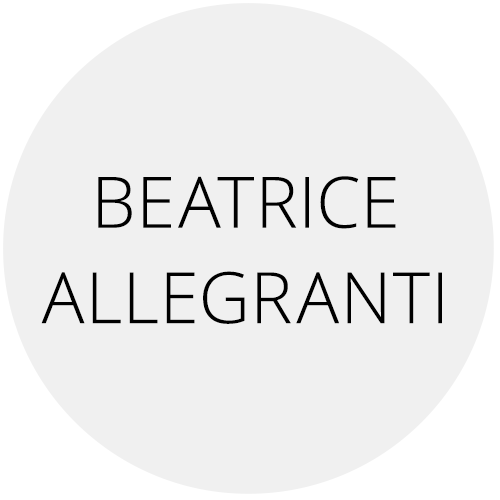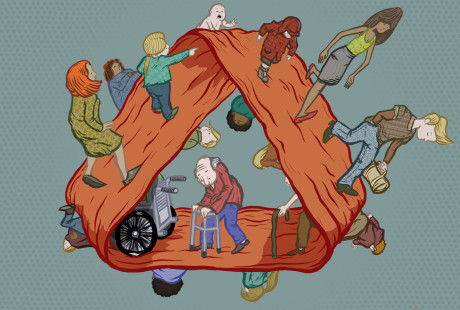About
Beatrice Allegranti (she/her) is Italian-Irish, born in Florence, and working internationally. Through her award winning feminist practice she has been producing work for 25 years across several forms including choreography, film, psychotherapy, capoeira, research, writing, pedagogy and public speaking. The transdiciplinary strands of Beatrice’s work tackles burgeoning and interrelated social and environmental justice issues of intersectional body politics, loss, traumatic experiences in mental health, migration and ‘othering’ — through ethical, progressive and award winning artistic and research practice, and trauma-responsive somatic psychotherapy practice. Beatrice is Artistic Director of the Moving Kinship Hubs that offer ways of practicing feminist justice in our more-than-human world.
Marked by extensive collaboration and research with diverse audiences, artists, scientists and activists, and partnerships across the arts, science and mental health sectors, Beatrice’s feminist work breaks down the boundaries between performance, participation and activism, and has featured in a variety of public venues including traditional theatres and studios, grass roots community organisations, art galleries, environmental justice forums, science labs, hospitals and open landscapes.
Beatrice has taught, mentored, supervised doctoral research, and nurtured a generation of dance artists, dance movement psychotherapists, actors and theatre makers to work in collaborative and interdisciplinary ways and is regularly invited to present her work in arts, health and higher education sectors globally.
Beatrice Allegranti’s work has received numerous and wide ranging awards, grants and commissions including: Dutch Dance Days, The Netherlands; Independent Shorts Awards, Los Angeles; Arts Council England; Surrey Arts; Dance21; Public Health; London Arts; the Japanese Directors Association; Bergen International Festival; The Last Chapter Festival, the Carl Couch Award; UnLtd Catalyst Award; Grieg Academy of Music – Norway; Fundação para a Ciência e a Tecnologia – Porto; hYbrid – Conversations between Science and Art at IBMC Porto; University of Roehampton – Department of Psychology; White Hart Lane Therapy Centre; N Creative; Women Director’s Cut – Video Channel Cologne, Santander Award for UK-Brazilian Collaboration; 2015 Norman K. Denzin Qualitative Research Award; 2004 Directors Cut Award, Cologne Film Festival.
Photo: Jackie King
Illustrations: Neil Max Emmanuel
All website ©Beatrice Allegranti



